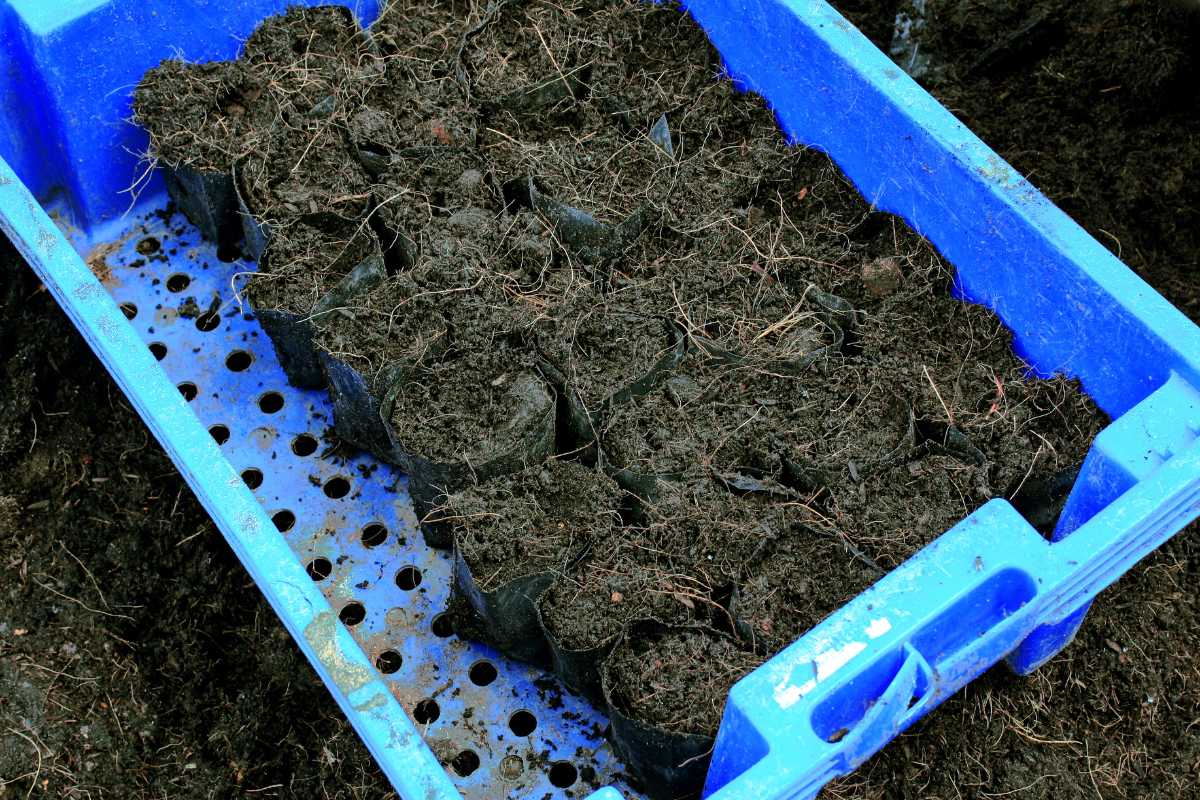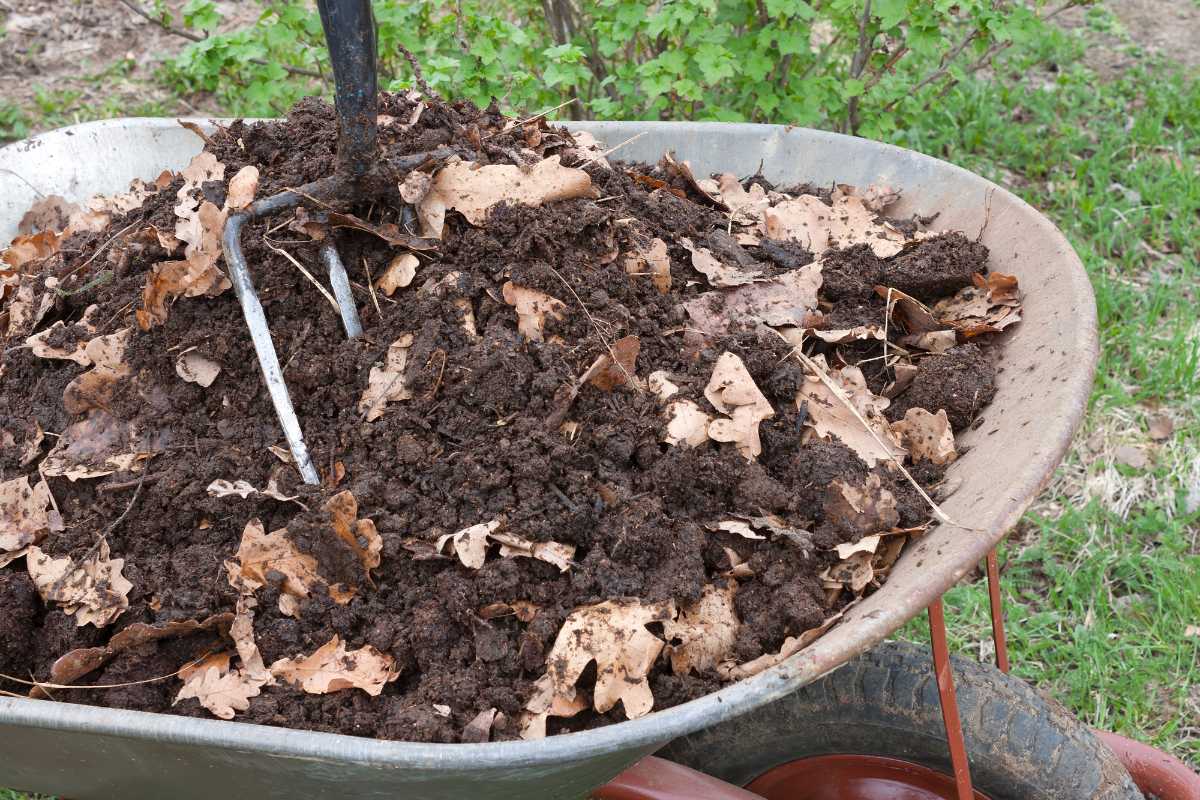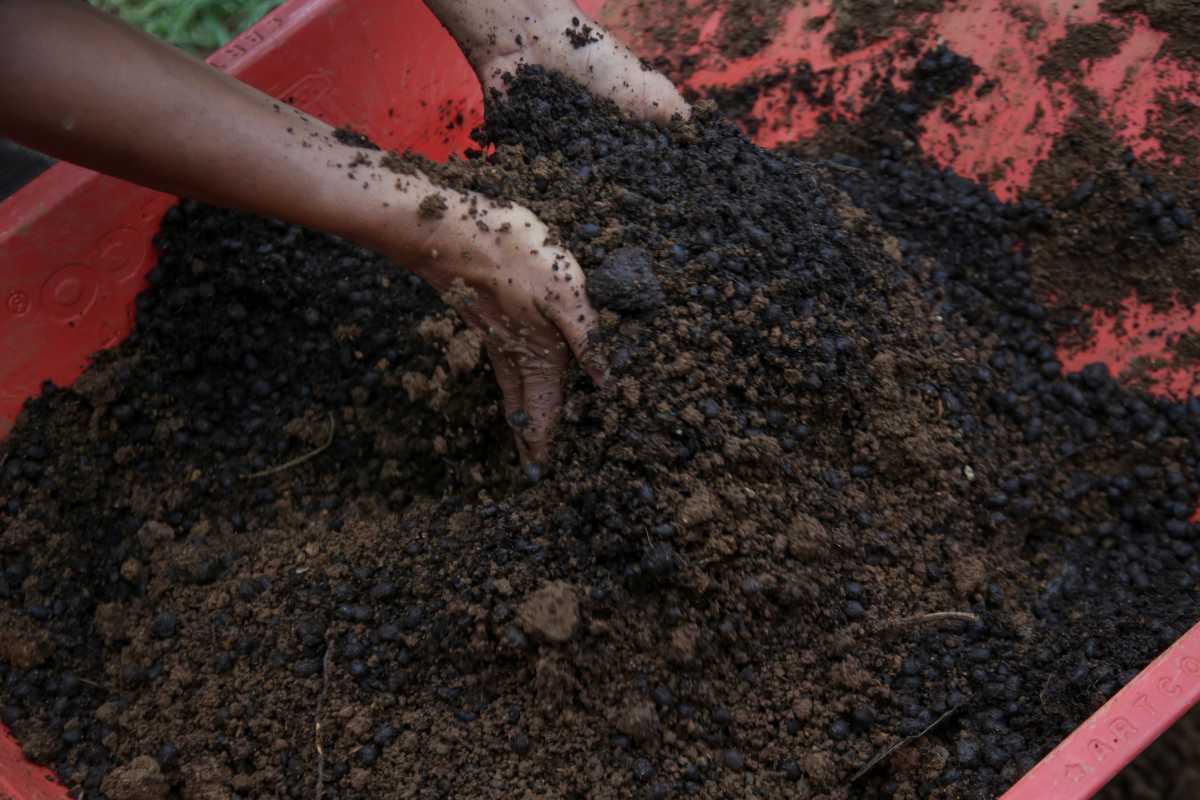When it comes to gardening, there are a lot of words that you may not have encountered before – like humus.
While you would be forgiven for thinking that humus is a chick-pea and garlic dip, but when it comes to the gardening variety, you probably wouldn’t want to spread it on a pitta.
In this article, I’m going to go in-depth about what gardeners mean when they refer to humus. I’ll be going through its composition, benefits, and uses, so you can be confident you’ll know the difference between humus and hummus!
What is Humus? How is Humus Formed?

Some people will interchange the word “humus” with finished compost, but it actually can take years for proper humus to form.
Humus refers to compost that has been completely broken down, to the point that there is no microscopic action taking place any longer. It has three main components: humic acid, fulvic acid, and humin.
So, while there will be some humus in finished compost, there will probably still be material that is in the process of being broken down until the compost is done enough to use on your garden.
- Read More about Humus vs Compost
Humus-rich soil is dark and spongy, containing only organic materials that cannot be broken down anymore. It is usually nitrogen-rich, although it does contain other nutrients as well. As well as containing nutrients, humus can retain other nutrients found in soil, keeping them within the reach of your plants roots.
Humus is formed after years of decay. Living organisms in the soil feast on the organic matter until there is nothing left for them to process. This leftover matter is humus.
While humus can be formed in a compost heap, it is also formed naturally in forests and anywhere else that organic matter is left to decay. When you add compost to your soil, it will continue to break down until it forms humus.
There is actually a few contradicting thoughts about what humus actually is. Some maintain that it is organic matter that has been broken down without oxygen, while others state that it only applies to natural organic matter rather than domestic compost that includes food scraps.
But the defining features that everyone appears to agree on is that it is a dark spongy substance that takes longer to form than your common, garden variety compost.
8 Benefits of Humus
There are many benefits to humus, and lots of gardeners and farmers improve the growing conditions of their plants by using it as an additive in their soil.
1. Nutrients
Humus contains numerous minerals and nutrients, and is around 60% carbon, which is essential for healthy soil quality.
It also contains nitrogen, phosphorus, magnesium, calcium, sulfur, and potassium. All of these will stimulate plant growth and help them develop both below and above ground.
2. Water Retention
Humus can hold up to 90% of its weight in water and so is an amazing addition to any dry or fast-draining soil. For this reason, it is excellent to use in potting mixes.
3. Texture
Humus gives a crumbly texture to the soil, loosening up the soil structure and improving the condition for root growth.
This quality makes it a good addition to clay soils as it will break up the soil to allow roots to grow, and combat compaction.
4. Soil Condition

Due to its texture and water retention, humus will improve the condition of any soil. It aids in aeration, drainage and water retention.
In addition, its high nutrient content makes it the best soil conditioner for any soil type.
5. Anti-Erosion Properties
Helping prevent erosion is especially useful in farming. Data has shown that tripling the humus to soil ratio can reduce soil erosion by up to 33%.
6. Holds Nutrients in the Soil
Humus actually latches onto precious nutrients and prevents them from leaching into the soil.
This means that beneficial nutrients are kept near the surface of the soil, so that plant roots can easily absorb them.
7. pH Level Balance
Some studies have shown that humus has the ability to moderate pH levels and prevent soil becoming too acidic or alkaline.
8. Increases Boil Temperature
The dark color of humus means that the soil will warm up earlier in the spring, and aid seed germination.
How to Use Humus

Humus can be used in the same way as compost. It can be dug into the soil, or laid on top and used as a mulch.
Soils with as little as 2% humus are still considered to be high-quality, fertile soil, so any amount of humus will be a good addition to your soil.
You can also use humus with potted plants, both outdoors and indoors. Humus can be used to repot plants, or you can mix it with other soil additives to make your own potting soil.
Its nutrient content and soil conditioning make it the perfect addition to a potting mix.
Due to the higher costs of humus compared to compost, you may want to stick to using it with your potted plants, rather than digging it into a large vegetable garden.
What is Humus? Final Thoughts
Like hummus dip, humus soil is both nutritious and healthy – although the soil variety definitely doesn’t taste as good!
Humus is a great addition to your soil and will help maintain the health of your plants as well as the fertility of your soil.
I hope after reading this article you now have a better understanding of how important humus is to soil. The natural world relies on humus to survive, and so do we! Farming has discovered the importance of humus in soil, and as it takes so long to make, it is a valuable asset.
While some gardening articles may interchange humus with compost, it is actually very different. Compost can turn into humus, humus is not classified as compost.
Some gardeners define humus as made of wood and leaves rather than domestic organic waste, while others claim that it is materials that have decomposed aerobically only. Whatever the case, humus is always found in healthy, fertile soil.
Humus FAQs
What is humus made of?
Humus is composed mainly of carbon and nitrogen, which means that humus is mostly organic matter. The other main components are minerals such as calcium, magnesium, phosphorus, potassium, sulfur, and sodium.
What is humus soil?
Humus soil refers to finished compost that has decomposed even further, to the point that there is no decomposition any longer. This is the rich, dark nutrient-rich humus that is mixed with soil to create humus soil.
Why is humus important?
Humus is important because it helps plant roots and absorb water and nutrients from the soil. Humus is a natural soil conditioner that helps maintain healthy plants.
Is humus rich soil acidic?
Yes, humus-rich soil is more acidic. Humus is generally carbon-rich, which makes it acidic. Depending on the plants you are growing and its soil needs, you will want to be careful with how much humus you add to soil.

